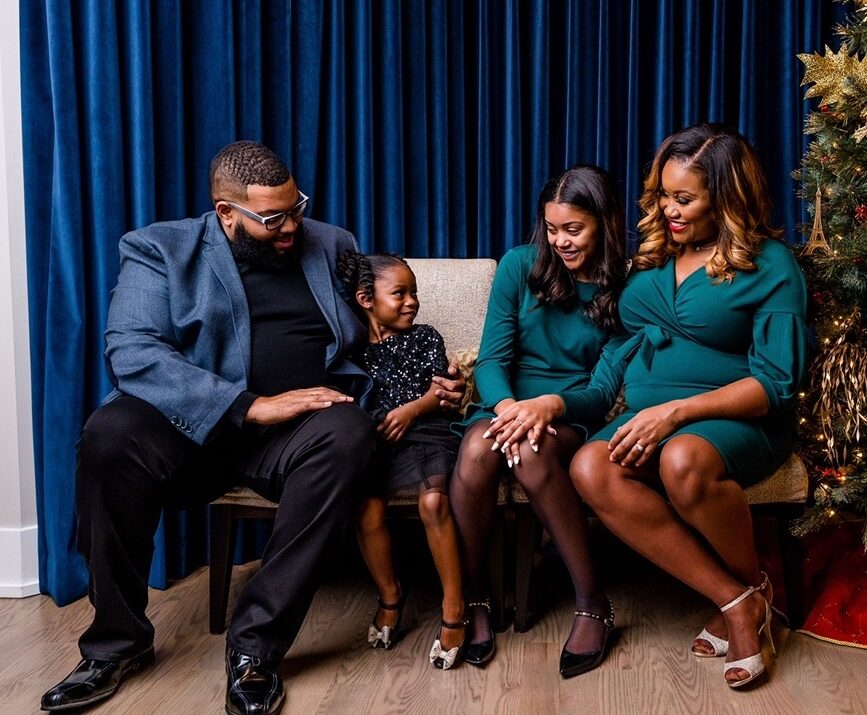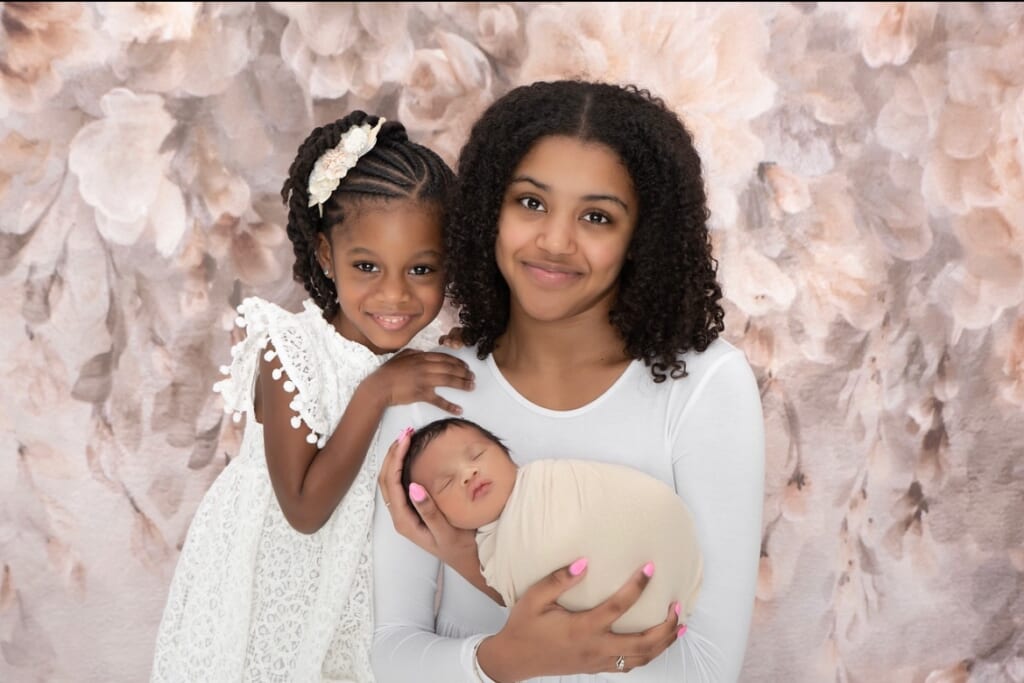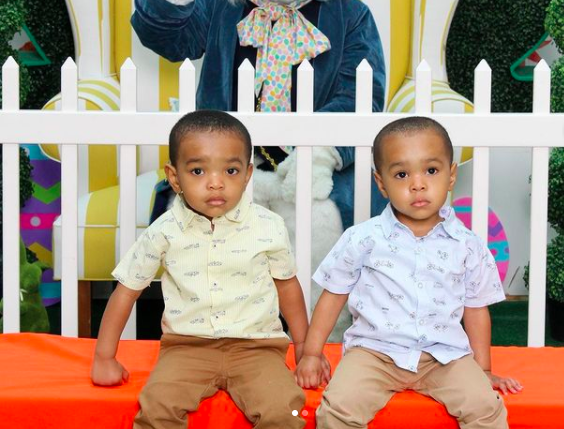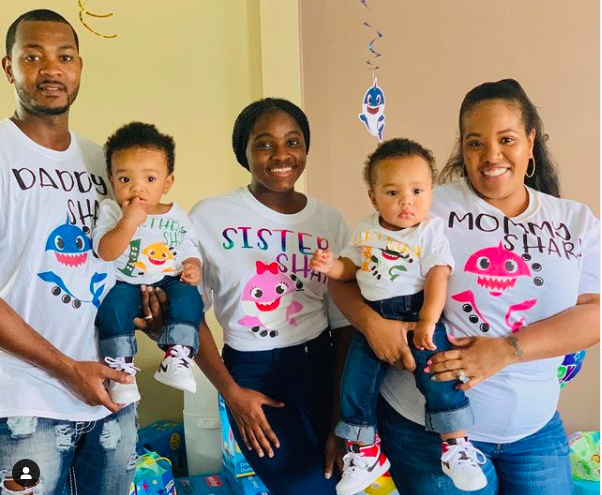Black moms find beauty in fertility journeys, untraditional paths to motherhood
Nastassija Spraggins and Bianca Mitchell are sharing their truths about fertility, motherhood and more
Growing up in the U.S., the path to motherhood is typically presented one way. A man and woman get married, have sex and nine months later, they welcome a child with open arms.
This traditional journey is often depicted in television, music, movies, in classrooms and in families. Historically, Black women in particular have been categorized as especially fertile. The reality of motherhood and fertility, however, is not that simple.
There are millions of women who’s journeys have included medical assistance, years of waiting, fertility treatments and more. Black women are twice as likely as white women to have infertility, according to the CDC.
Not only are Black women suffering from infertility at higher rates, they also aren’t talking about it.
According to a 2015 University of Michigan study, Black women “often cope with this traumatic issue in silence and isolation.” The report also noted that Black women “more often feel that infertility hinders their sense of self and gender identity.”
In an effort to shed the stigma and showcase unique paths to motherhood, theGrio sat down with two Black mothers who utilized fertility treatments to create the loving families they wanted.
Nastassija Spraggins

When Nastassija Spraggins decided it was time for second child, she wasn’t concerned about fertility. She had already had a successful pregnancy, welcoming daughter Natalia, 12, in 2008. The special education teacher just knew that her second pregnancy would be as easy as her first.
The reality, however, proved to be more complicated.
“About eight years after my first, I was trying to have my second and I was having a really hard time conceiving,” the 36-year-old explained. “I had a conversation with my OB-GYN [Dr. Stephanie Cox-Baston] who said, ‘You usually go about six months to a year, and if nothing happens, then we’ll do some follow up.’ Nothing happened, so I ended up going to see a fertility specialist.”
“I was diagnosed with unexplained infertility, and also secondary infertility, which means that you’re able to conceive naturally and then you need assistance. So I went through the procedure called an IUI, or intrauterine insemination, and that was successful for me. I was able to have my second child.”
Spraggins welcomed daughter Zuri, now 4, in 2016. When the Chicago native married her husband, Brian Thigpen, in October 2019, the couple knew they wanted to add another child to their brood. Expecting that she would have to use IUI, Spraggins contacted her doctor and began her first round.
IUI is a simple procedure that involves transferring sperm cells directly into the uterus via a small catheter, around the time of ovulation. Fertility medicine is often used in addition to the procedure to increase the likelihood of conception.
After two failed rounds of IUI, Spraggins’ doctor informed her that she was no longer a candidate and should consider in vitro fertilization (IVF). According to the American Pregnancy Association, IVF is described as “the process of fertilization by extracting eggs, retrieving a sperm sample, and then manually combining an egg and sperm in a laboratory dish. The embryo(s) is then transferred to the uterus.”

Read More: 5 things to watch over Mother’s Day weekend, no matter your mood
Spraggins’ first round of IVF was successful. She and her husband welcomed their son, Beckham, 12 weeks, in 2020.
Spraggins utilized several fertility resources, including blogs, talking to friends and sometimes speaking with other women at the doctor’s office, to prepare for her second and third pregnancies. While her side effects from IUI were minimal, Spraggins’ experience with IVF was more difficult.
“[IVF] is a much more complicated procedure,” Spraggins shared. “There’s a lot of bloodwork, a lot of monitoring to just make sure that your hormone levels are staying in a normal range, a lot of ultrasounds to take a look at your ovaries and uterus. I was taking five injections a night, preparing for the egg retrieval. The costs become really challenging, but thankfully, I had relatively decent insurance, so we didn’t pay too much out of pocket.”
The procedure not only caused physical changes for Spraggins, but emotional ones as well, including a fear that the pregnancy wouldn’t sustain and she’d “have to kind of start all over again.” The emotional toll eventually led her to have frank conversations about her journey with her oldest daughter and husband.
“I explained everything to [Natalia] because it was so many medications,” the mother of three said. “I had to tell her, ‘I’m having IVF. This means I’m having a hard time getting pregnant naturally. So I have to take these hormones.’ I was tired a lot, and I could get moody. Then there were times where I was on reduced mobility around the house. I would be just sitting on the couch for 48 hours, only getting up to go to the bathroom. I leaned on her a lot to help.”
Spraggins continued, “My husband, he got it but he didn’t 100% get it. He was hands-on as far as helping me administer some of the medications. I remember at one point, he was coming home telling me like, ‘Oh I have great news, such and such is pregnant at work, or this person’s wife is having a baby.’ I had to tell him like, ‘Hey, it’s kind of hard, not wishing anybody bad, but it’s kind of hard for me [to hear when] I’m going through this process.’ And he took heed to that.”

Spraggins also had to explain the decision to use fertility assistance to her mother, who was nervous about the possible side effects for her daughter and future grandchild. According to Spraggins, her mom initially urged her to “reduce some stress and keep trying naturally.” It was a teaching moment for Spraggins, who took the opportunity to educate her mom on the process.
“This is something that I expressed to my best friend in frustration. I’m like, ‘I’m so tired of people saying what’s meant to be, will be. If God wants you to have another baby…Like no, God is saying, I’m giving you the resources to go get it,'” Spraggins explained. “So I was relatively secretive. I did have to tell my mom just because it was a heavy process.”
“My mom was just like, ‘I don’t know anything about that.’ There’s a misconception something will come out wrong with the baby born in a petri dish or conceived in a petri dish. I’m like ‘No mom. If millions of people, like Barack and Michelle [Obama’s] kids, are born via IVF, we’ll be okay. That was kind of my go-to, like [Sasha and Malia] turned out all right.”
Fully accepting of her journey, Spraggins now wants to be a resource for other women.
“[The most beautiful part of the journey was] I was able to produce life from it both times. But the fact that I have a story now, too, that I can share with other women. I think that it’s still a very hush hush conversation,” she said.
“I posted about it for National Infertility Week. I have people sending me private messages, like they wouldn’t comment on the post, but they still send me private messages. …Just making this something that we can all share with one another, because it just should not have to be a secret, especially in 2021.”
Bianca Mitchell

Bianca Mitchell spent her 20s blissfully unaware of her fertility status, like most women do. It wasn’t until she turned 30 and started trying for family that Mitchell discovered she was struggling with fertility.
“I stopped taking birth control in January of 2016, because me and my boyfriend, my husband now, we wanted to start working on having kids. He already had a kid, so it never dawned on us that he needed to get tested,” the Detroit native explained. “I just automatically assumed [I would be fine], especially because I’ve never heard anyone in the Black community talk about having issues getting pregnant.”
“It didn’t really dawn on me to go to the doctor until I turned 30 in September of 2017. My doctor was like, ‘Well, it looks like you’re not releasing an egg during ovulation.'”
Mitchell spoke with her doctor about treatment options that may work for her and they settled on Clomid, a drug that stimulates ovulation. Although Mitchell now had a diagnosis and fertility plan, the discovery of her status made her fell less than, like she was “defective.”
“I did feel inadequate as a woman. I felt real inadequate as a Black woman, because you hear about women of other cultures talking about their stories, but then you don’t hear about Black women,” the 33-year-old said. “We weren’t telling people that I took fertility medicine. I know for me, personally, I was embarrassed.”
“I didn’t even tell my parents. I told my older sister, but I felt embarrassed because I felt like I was inadequate. I felt defective. I felt like, ‘What’s wrong with you?’ I felt like I was going to be judged.”
Mitchell eventually came to terms with her diagnosis with help from her husband, Billy. With her medicine in tow, she and Billy went on vacation to relax and reconnect toward the end of 2017. By the time they returned, Mitchell was pregnant…with twin boys.

“I’m impatient. So just waiting to see like ‘Am I late? Okay, I’m a day late. Should I take a test? Should I wait?’ You know, things like that,” Mitchell explained. “Then once I got pregnant, I was like, ‘Okay, cool.’ I had a little morning sickness, but nothing major. Then once I found it was twins, we almost hit the floor.”
Mitchell’s doctor informed her that Clomid gave her a 50% chance of conception and only a 5% chance they she would conceive multiples. There are a few sets of twins scattered throughout Mitchell’s family, but she had no expectations that she would welcome twins herself.
“It’s like one [set of twins] every generation and it just so happened it wanted to come up on my behalf. Then here comes my daddy talking about ‘Well, you always were an overachiever,'” Mitchell said with a laugh.
The boys, Billy and Bryan, were born in September 2018 via emergency C-section. Mitchell is now pregnant again with a daughter, whom the couple plan on naming Brea. Unlike her first pregnancy, Mitchell and her husband conceived their daughter naturally without any fertility drugs.

Read More: Aja Naomi King announces pregnancy following two miscarriages
“Because I needed fertility help the first time, we just assumed that would always be the case if we wanted more children. So we didn’t entertain the idea of birth control. Then it happened,” the eights-months-pregnant travel agent shared.
“After getting pregnant with this baby, I have been become more open with sharing my story. Because I feel like it provides hope to women who do have to go through a fertility process that, miraculously 2.5 years later, you might get pregnant.”
“Don’t be shy to talk about it,” Mitchell said when asked what advice she’d give to Black women embarking on their own journeys. “Go to the doctor, make sure everything is good. Then if you get an answer, and you don’t think it’s right, go to somebody else. You just gotta be open. Black people, we can be so ashamed, but we got to talk to folks.”
Have you subscribed to theGrio’s new podcast “Dear Culture”? Download our newest episodes now!
TheGrio is now on Apple TV, Amazon Fire, and Roku. Download theGrio today!
The post Black moms find beauty in fertility journeys, untraditional paths to motherhood appeared first on TheGrio.
from TheGrio https://ift.tt/3f47gHQ
No comments: